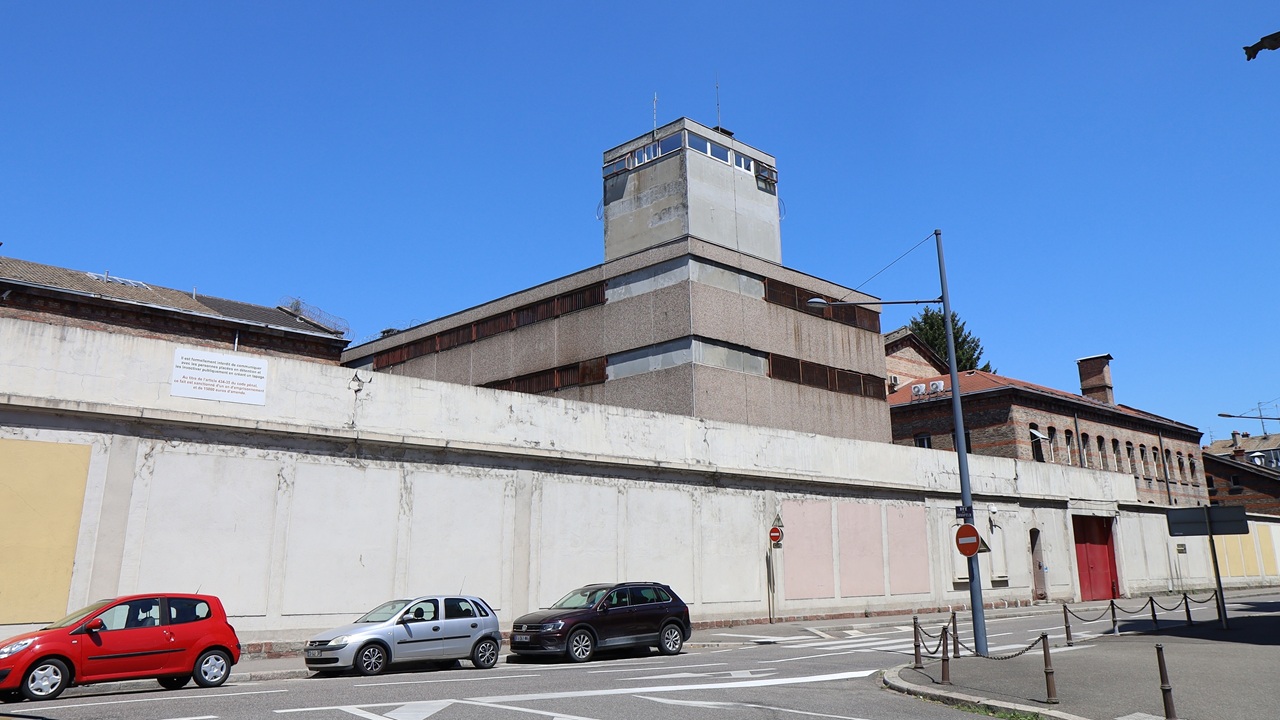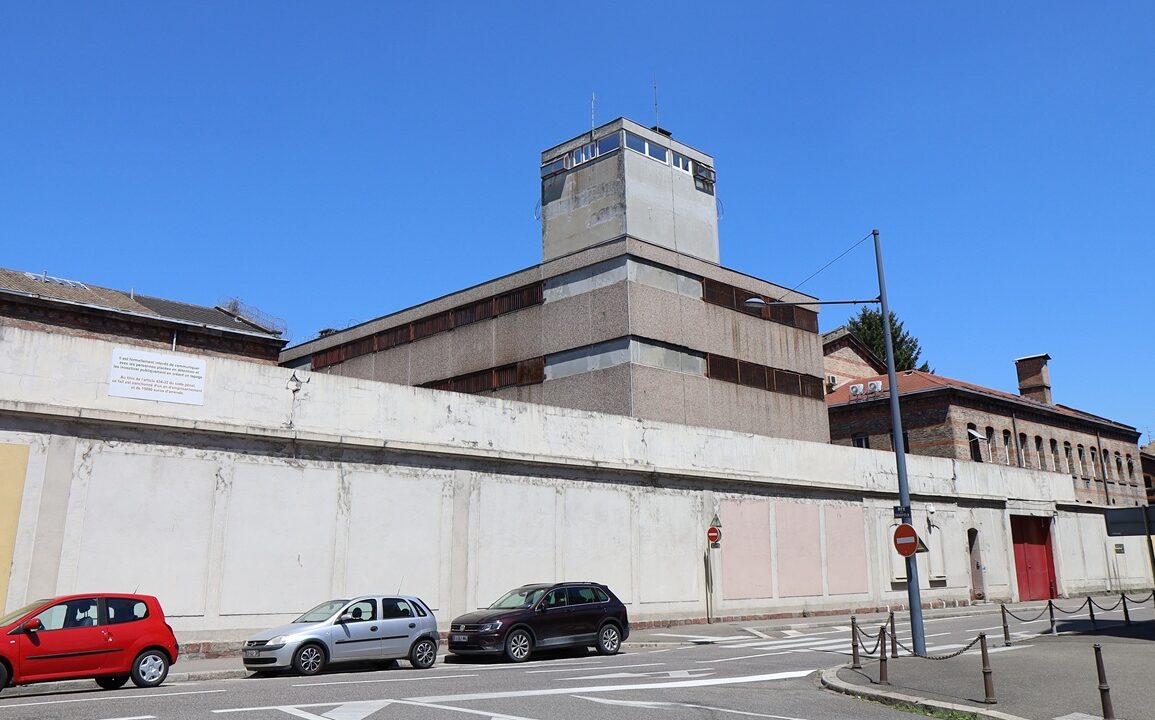
By dumping the dregs of French society into the Western Hemisphere—with the possibility that they might escape—Paris is creating a problem that America may suffer from.
In an epic case of, “Tag, you’re it!,” the French government is building a “high-security prison” in the middle of the Amazon jungle in French Guiana. This prison will house the most dangerous criminal elements within France, including drug traffickers and violent jihadists.
This is unquestionably a smart move on France’s part: it puts as much distance as possible between metropolitan France and the worst elements of its society. But the United States should give this a second look. After all, by moving these criminal elements out of Europe, it is sending them to its hemisphere—at a time when the United States is already experiencing an illegal immigration crisis along its southwestern border.
The $448 million facility will be built in the isolated northwestern region of Saint-Laurent-du-Maroni in the South American, French-controlled enclave. The prison is set to be opened by 2028, and will hold upwards of 500 people, with an entirely distinct wing meant to hold the most violent criminals and terrorists, according to the BBC. Curiously, the prison is being placed near the notorious Devil’s Island penal colony that housed a total of 700,000 convicts between 1852 and 1954.
Why Build a Prison in French Guiana?
French Guiana has been under the control of France since the age of European empires. It is a relatively poor region, although its citizens have the right to vote in French elections and benefit from France’s generous welfare state. France uses this area of South America to launch its rockets into space, too, since it is so close to the Earth’s equator.
Paris wants to use this geographically isolated location to remove their most hardened and dangerous criminals. The government has determined that by sending these prisoners to such a distant, isolated place, French authorities will finally disconnect their linkages to the wider criminal and terrorist organizations plaguing wider French society.
As it turns out, Paris might be right. Organized criminal groups plague the French justice system, inside and outside of prison; criminals within the prisons have seemingly reliable access to smuggled cell phones, and in some cases have been shown to conduct their criminal enterprises and plot terrorist schemes from inside the pen. This is such a significant problem that the French government is reportedly considering legislation to regulate cell phones—making it far harder to acquire the “burner” phones widely used in prisons.
France’s criminal networks are so powerful and brazen that they have even started attacking the prisons holding their compatriots. Vehicles have been set aflame, and shootings directed at prison personnel have taken place in Toulon. It is believed that by moving these high-value prisoners to such an isolated location, the French authorities will better prevent these attacks—and isolate the prisoners from the criminal groups that seek to break them out.
But this is hardly a sure thing. After all, the South American prison’s location is now a matter of public record. If the French criminal networks are daring enough to attack French penitentiaries, and if they value having contact with their criminal and terror-minded overlords, what’s to stop such brazen elements from attacking the prison?
America Is Next Door
The Trump administration should be worried about this question because of the prison’s relative proximity to the United States. By dumping the dregs of French society into the Western Hemisphere—with the possibility that they might escape—Paris is creating a problem that America may suffer from. Indeed, given the relative ease of traveling from South America to northern Mexico and sneaking across America’s porous southern border, how can anyone be certain that these elements will remain outside the United States in the event of a jailbreak?
One thing is equally troubling: if these groups make the attempt to cross in such a fashion, they will inevitably cross paths with the pernicious illicit narcotics, human, and weapons trafficking flows moving throughout the region into the United States. If the two groups decide to join forces, the result would be catastrophic, both for the United States and for France.
This transnational criminal and terrorist network is already at the forefront of French leaders’ minds, seeing as they openly explained to the media that the new facility “will be built at a strategic crossroads for mules, particularly from Brazil and Suriname.” In other words, this facility is nowhere near as remote as it appears.
There is absolutely no good reason for the United States to allow France to base such a dangerous facility in its part of the world. Armed with the Monroe Doctrine, Washington should tell Paris to place it somewhere else, like the middle of the Sahara Desert—or underground somewhere in France. Anywhere but here.
Keep French Problems Out of the New World
The Trump administration has decried foreign nations opening their prisons and encouraging their convicts to travel to America during the open-border era of the Biden administration. Trump made putting an end to that a key plank to his successful reelection bid in 2024. In the months since, Trump has cracked down on the border, with apparent success.
So why is it that the French are keen on putting in a major prison in a part of the world that is a hub for the kind of violent extremism and criminal behavior that threatens Americans along its southwestern border? What’s to stop France from exporting their violent criminals and terrorists into the United States? The Trump administration must use whatever inducements are at its disposal to stop this prison from being built.
About the Author: Brandon J. Weichert
Brandon J. Weichert, a Senior National Security Editor at The National Interest as well as a contributor at Popular Mechanics, who consults regularly with various government institutions and private organizations on geopolitical issues. Weichert’s writings have appeared in multiple publications, including the Washington Times, National Review, The American Spectator, MSN, the Asia Times, and countless others. His books include Winning Space: How America Remains a Superpower, Biohacked: China’s Race to Control Life, and The Shadow War: Iran’s Quest for Supremacy. His newest book, A Disaster of Our Own Making: How the West Lost Ukraine is available for purchase wherever books are sold. He can be followed via Twitter @WeTheBrandon.
Image: Shutterstock / EBASCOL.
This post was originally published on this site be sure to check out more of their content.









